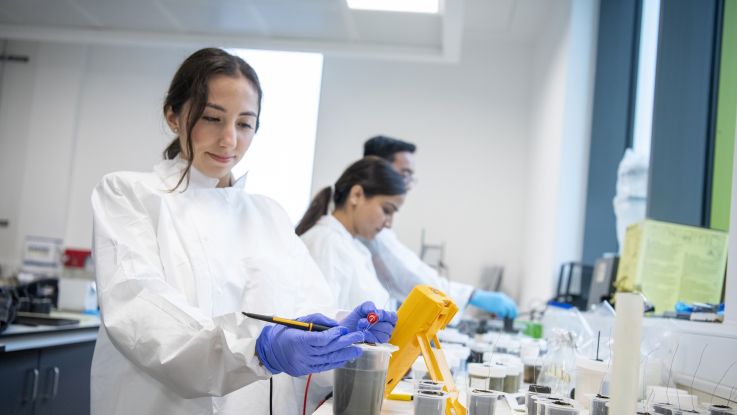

Navigating Future Staff Recruitment
Kick-starting the year with an air of optimism, Southampton Science Park launched its 2021 Lunch & Learn webinar programme with a Q&A-led session on recruitment.
Designed to guide business leaders on appropriate strategies to recruit and retain talented, productive people in challenging times, host Jane Holt was joined by a panel of experts comprising: Stephanie Barnett, Managing Director of HR and training consultancy Pure Human Resources, Ian Cruikshank, Managing Director of software and technology recruitment specialists Spectrum IT, and Rod Hutchings, Co-Founder and Director of executive search and interim financial management recruitment experts, Chilworth Partnership.
Asked what changes they’d seen over the last year, Ian Cruickshank led the conversation, highlighting that in the world of technology, companies had been largely Covid-19 resistant when it came to permanent staff. “In technology, everything moves fast so good people continue to move around,” he said. “We’ve seen the launch of many cloud-based projects which have led to recruitment drives and we’ve also helped companies relocate from London to Southampton to benefit from reduced regional salaries, higher retention rates and enhanced staff wellbeing. Impending changes to tax legislation (IR35) has caused uncertainty for companies who work with interim contractors, creating a bit of a lull in this sector.”
Stephanie Barnett commented on how companies have had to adapt the way that they attract talent. “Companies now need to pay a lot more attention to how they differentiate themselves. I would urge businesses to make sure that their websites appeal to employees and candidates, not just customers,” she advised. “Benefits are key but they’re no longer about free parking or statutory holiday entitlement. Now, it’s all about wellness and employers need to be aware of the need to look after their people a bit more. Flexible/compressed hours working are big drivers, as are out-of-hours family support, mental first-aid, extra holiday provision, medical cash plans. Employers should shun these ideas at their peril – low cost, high value benefits are a great way to expand their talent pool.”
The Chilworth Partnership’s Rod Hutchings agreed that the candidate experience from the outset is now paramount. “In financial recruitment, we have found that a combination of face-to-face and virtual interaction works best to determine best fit and employers must respond quickly if they don’t want to miss out on good people. Even if a candidate isn’t right for one particular role, if they have a good experience, they could come back in a couple of years and your time investment will not have been wasted. If you’re using a recruiter, use them wisely throughout the onboarding process. This is especially important when people are serving long notice periods: it’s common for good candidates to change their mind and either stay with their existing company or accept a counter offer.”
Several attendees asked questions about employing young people. Ian commented that there are still too few good quality STEM graduates coming into the workplace and, as a result, starting salaries are now much higher than they used to be. “I think the cost of university is itself a barrier and becoming prohibitive to many, so I expect to see many more good people looking for apprenticeships. I’ve seen this work really well for both companies and candidates. Indeed, several Science Park companies have really benefited from this approach.
“As always when employing someone with little or no experience, it’s important to lower initial expectations but in the long term, it’s a really good way to find loyal, permanent staff. Be prepared to do a lot of handholding and keep engagement up to enable them to bond with the rest of your team and remember that ‘one size doesn’t fit all’. Everyone’s’ situations are different, so ask regularly for feedback to understand if there’s anything that you as an employer can help with and respond to their needs.”
Agreeing with Ian, Stephanie added: “It’s all about communication. Whatever it is, you can never communicate too much - people make assumptions if they don’t hear from you. Also, be prepared to adapt your approach. Different age groups prefer different mechanisms, instant chats, for example. It’s all about communication.”
Closing the event, Jane Holt, Science Park Business Development Director, said: “This has been a really fascinating session covering a wide range of topics. Thanks to Stephanie, Ian and Rod for allowing everyone to pick their brains on all things HR in what continues to be a challenging economy. I’m sure we were all very encouraged to hear of the vibrancy of recruitment in our geographical area. It certainly looks set to be exciting year ahead!”
Look out for details of our next Lunch & Learn session in our events calendar - details to be announced soon.

















































































